The interwebs are tangled and our reception and transmission has become reeeeaaaallly...... slooooooooww.
It took about 8 minutes just to log on (bringing in firewood whilst waiting) and get to this point. It's good for housework in that I get impatient and Do Things whilst waiting but not conducive to study, on-line research or interesting blog posts. Ice ages form and melt whilst a single site loads. Perhaps that's because unforseen snow - yes, snow - in October, in South Australia, this week (yes, really!) may or may not have had something to do with the world wide web being swept up by the houseproud broom of the gods and our sole local telecommunications tower being fritzed.
The tower on a hill near the local town has been struck by lightning, threatened by bushfires and flooded before, so it becoming snow-bound is also quite possible. It might have just seized up in surprise. Now it's 28C on the back verandah and probably warmer in the sun. The animals are all lazing about in it, but the weeds aren't. They're recharging their superpowers and making up for lost time. On the bright side I hung out a load of washing whilst this picture loaded (of where I would offer you a seat to wait if, indeed, there was any vacancy). More posts to come ... eventually.
Study revision: the charming, poetic and highly detailed descriptions of saliva, it's production, content and variability. Think I'll read about that over lunch...
Sunday, October 14, 2012
Sunday, October 7, 2012
Tree at ninety degrees
I received a phone message one foggy morning in late winter from SO with this news, in picture form (hence the photo quality or lack thereof). At first I thought I was looking at my tiny phone photo sideways, but then got the picture - of the picture. And what it pictured. Or something.
An old sheoak, for which this paddock was named, is no longer. Well, it's actually still there, of course, rather than having just disappeared into the ether. It will be for quite some time, given it's size. It was no great girth around, being a slim sort, svelt as trees go, but when walking - for quite some time - around it we finally appreciated just how tall it was. And how lucky it fell sideways instead of the more logical and expected downhill trajectory - onto the fence, a sheep, a horse or another tree. Sometimes not having a logical and expected outcome works in our favour, the drawback of this being that things get utterly unpredictable altogether, like taking a shortcut with alpacas through the garden.
Study revision: All the names and shapes and parts and cartilages and intrinsic muscles and extrinsic muscles and bits and things of the impossibly complicated little lump that is the larynx. Without getting overwhelmed. It's just a pipe joiner with a valve after all.
An old sheoak, for which this paddock was named, is no longer. Well, it's actually still there, of course, rather than having just disappeared into the ether. It will be for quite some time, given it's size. It was no great girth around, being a slim sort, svelt as trees go, but when walking - for quite some time - around it we finally appreciated just how tall it was. And how lucky it fell sideways instead of the more logical and expected downhill trajectory - onto the fence, a sheep, a horse or another tree. Sometimes not having a logical and expected outcome works in our favour, the drawback of this being that things get utterly unpredictable altogether, like taking a shortcut with alpacas through the garden.
Study revision: All the names and shapes and parts and cartilages and intrinsic muscles and extrinsic muscles and bits and things of the impossibly complicated little lump that is the larynx. Without getting overwhelmed. It's just a pipe joiner with a valve after all.
Saturday, October 6, 2012
Spring has sprung
Springs, plural, have also sprung. They would be quite useful if they would kindly spring in places other than high-use trackways, the septic pit or the middle of the carport.
Nonetheless, water in any form is good. Stored water better, and as the morning ice melts off the roof in quite a musical fashion it adds to the already overflowing tanks. Tanks are a great conversation point in the hills and the relative levels of everyone's tanks at various times of the year is a polite addition to weather-centric small talk between neighbours. The temporary return to winter has also seen a temporary return to winter temperatures. Firewood is lying about all over the place in piles from storms but firewood cut, split and dry enough to burn is at a premium. This has driven small, warmth-loving mammals to trial new potential sleeping places.
Today's study revision: bones: as growing in young animals, bones: as broken in older animals and bones: as eaten by dogs.
Friday, October 5, 2012
Koala therapy
Hair-raisingly busy today, a million things need doing, so here, have a couple of koalas:
Study: figure out if fictional-but-typical case study has peritonitis or pericarditis or both.
Study: figure out if fictional-but-typical case study has peritonitis or pericarditis or both.
Thursday, October 4, 2012
Bunny boarder
My wish for a pet rabbit or three is yet to be fulfilled. Usually lagomorph visitors around here are treated to the hospitality of Mr .22 actually, if they haven't met Mr Fox, Mr Dog or Mr Fast-Moving-Vehicle first. It may seem rough sort of place for a bunny to take a holiday then, but this little chap settled right in, making straight for the cat dishes. Needless to say, not being our own, he was kept firmly inside and in sight.
His name is Charlie Bunny. He is the pet of our young nieces, themselves on holiday, and needing a safe house for their precious fluffy one. Safe houses not being available, he came here for a week instead. Whilst the cats pretty much ignored him with everything except the corner of one eye, Snowy was Most Interested and went on High Alert. While Georgie could neither see nor hear him she could certainly smell him and told the world so in a high pitched voice that drove us barking, er, well.. very mad. This meant Charlie Bunny was confined to the dog-free zone in the kitchen and his own private apartment in the bathroom, complete with picture window and hot and cold running water, none of which he used. Instead he explored. Incessantly. Usually the dirtiest, most mark-making places possible, like the sooty fire-irons.
While our place could most politely be described as "lived in" and a far cry from his former two-story architect designed outdoor residence and pristine suburban home where he is the sole animal occupant, he quickly adapted his cleaning regime and stopped us having to say "Here's your rabbit back, sorry about the dirt!".
Today's study revision: The secret microbial world of ruminants, their several secret chambers of grass processing and why they shouldn't eat too many lollies.
His name is Charlie Bunny. He is the pet of our young nieces, themselves on holiday, and needing a safe house for their precious fluffy one. Safe houses not being available, he came here for a week instead. Whilst the cats pretty much ignored him with everything except the corner of one eye, Snowy was Most Interested and went on High Alert. While Georgie could neither see nor hear him she could certainly smell him and told the world so in a high pitched voice that drove us barking, er, well.. very mad. This meant Charlie Bunny was confined to the dog-free zone in the kitchen and his own private apartment in the bathroom, complete with picture window and hot and cold running water, none of which he used. Instead he explored. Incessantly. Usually the dirtiest, most mark-making places possible, like the sooty fire-irons.
While our place could most politely be described as "lived in" and a far cry from his former two-story architect designed outdoor residence and pristine suburban home where he is the sole animal occupant, he quickly adapted his cleaning regime and stopped us having to say "Here's your rabbit back, sorry about the dirt!".
Today's study revision: The secret microbial world of ruminants, their several secret chambers of grass processing and why they shouldn't eat too many lollies.
Wednesday, October 3, 2012
Thistle do
Yesterday dawned cool and clear and turned into a warm and sunny day. After a week of sunny days. This information is specifically for our northern readers facing the autumn approaching. We've got the sun, thanks very much, we'll lend it to you occasionally and send it back next year.
What this means, however is that the plant population, only transiently resident during the rest of the year, really excels itself with the combined rainfall and spring warmth to create swaths of bending grasses, waist-high weed infestations, very fat sheep and thistles. Lots and lots of thistles. Between the barbarous stinging nettles, welt-inducing cleavers (known around here by the delightful term "sticky Willy") and the thistles-with-razors-as-leaves the garden and paddocks become a bit less hospitable, never mind the poisonous stinging and biting creatures that come out this time of year too. Regarding the thistles we do have some help. The sheep do their best, last year denuding whole patches so they could be got through with newly-shorn and therefore more tender flanks.
Even so, they grow higher than a horse. Literally.
Princess likes to delicately nibble the flowers and get the sweet stuff out from inside the nasty nests of thorny spikes (prehensile lips come in handy, er, so to speak). This helps the future seed population, but not the current skin-flailing growth. To this end all the free-range sheep have been moved to the paddock formerly known as the Sheoak paddock, but due to another vegetation disaster now Sheoak-less, (more on this later) and SO has spent the best part of three sunny days eradicating thistles in the rest of the wilds. Which has made him a bit spiky and inhospitable too.
Today's study revision: The amazingness that is the digestive system when it comes to sorting out sugars, carbs and proteins and which bit to use first.
What this means, however is that the plant population, only transiently resident during the rest of the year, really excels itself with the combined rainfall and spring warmth to create swaths of bending grasses, waist-high weed infestations, very fat sheep and thistles. Lots and lots of thistles. Between the barbarous stinging nettles, welt-inducing cleavers (known around here by the delightful term "sticky Willy") and the thistles-with-razors-as-leaves the garden and paddocks become a bit less hospitable, never mind the poisonous stinging and biting creatures that come out this time of year too. Regarding the thistles we do have some help. The sheep do their best, last year denuding whole patches so they could be got through with newly-shorn and therefore more tender flanks.
Even so, they grow higher than a horse. Literally.
Princess likes to delicately nibble the flowers and get the sweet stuff out from inside the nasty nests of thorny spikes (prehensile lips come in handy, er, so to speak). This helps the future seed population, but not the current skin-flailing growth. To this end all the free-range sheep have been moved to the paddock formerly known as the Sheoak paddock, but due to another vegetation disaster now Sheoak-less, (more on this later) and SO has spent the best part of three sunny days eradicating thistles in the rest of the wilds. Which has made him a bit spiky and inhospitable too.
Today's study revision: The amazingness that is the digestive system when it comes to sorting out sugars, carbs and proteins and which bit to use first.
Tuesday, October 2, 2012
Cold competition
Curiously, we didn't see any more photos from newbie Hills dweller about temperature after that.
Snowy has her own solution for that time around 4:30am when the master of the house isn't up yet and the fire is burning low. She's scared us several times when, on emerging from the bedroom at a ridiculously long time before sunrise, there is no beagle to be seen. A moment of panic and a quick small-pet head count confirms no second dog. The check to find where said dog has escaped from, which window, door, air vent or skylight (don't ask) is forced open used to happen before she would reveal herself. Now we know just to check under our giant-sized cushions first.
Today's study revision: The way animals breathe. What happens when animals don't breathe. How to get animals to breathe again.
Monday, October 1, 2012
Eggstreme living
I am hoping today is actually the Queen's Birthday Holiday otherwise I'm missing the first day back to uni after the spring mid-term break, which zoomed by like an escaped beagle.
The impending return to the civilised world means today's jobs include making enough portable lunches to survive the week and finding clothes with no rips, tears, grass seeds or animal hair attached. Their extreme rarity means that at this point I usually just buy new clothes, but since it's a public holiday that option is limited. The lunches may be easier to achieve as we are inundated by eggs from the zealous feathered ones. I see a lot of quiches, pikelets and vegetable slices in our immediate future.
They're becoming quite fashionable, the chickens as well as the slices. Several of our former suburban customers have chickens of their own now. and we are often involved in conversations regarding their upkeep, housing arrangements, egg recipes and internal hen house politics. While on the whole I regard this chicken-keeping boom to be a Good Thing, it does mean we need to cook our egg glut, for which I must first clean the oven. Perhaps we'll have fried eggs instead.
In an effort to just get on with it as it's 5 weeks until exams (thunder roll, psycho music)
Today's study: the wonders of the mouth, dentition and differences between carnivores, ruminants and equines, why horses need dentists but don't actually like them.
The impending return to the civilised world means today's jobs include making enough portable lunches to survive the week and finding clothes with no rips, tears, grass seeds or animal hair attached. Their extreme rarity means that at this point I usually just buy new clothes, but since it's a public holiday that option is limited. The lunches may be easier to achieve as we are inundated by eggs from the zealous feathered ones. I see a lot of quiches, pikelets and vegetable slices in our immediate future.
They're becoming quite fashionable, the chickens as well as the slices. Several of our former suburban customers have chickens of their own now. and we are often involved in conversations regarding their upkeep, housing arrangements, egg recipes and internal hen house politics. While on the whole I regard this chicken-keeping boom to be a Good Thing, it does mean we need to cook our egg glut, for which I must first clean the oven. Perhaps we'll have fried eggs instead.
In an effort to just get on with it as it's 5 weeks until exams (thunder roll, psycho music)
Today's study: the wonders of the mouth, dentition and differences between carnivores, ruminants and equines, why horses need dentists but don't actually like them.
Sunday, September 30, 2012
The things they teach you in vet school 2
"The ungulates, being those animals with hoofs on the menus of those animals with claws, have adapted in many specialist ways to get away really fast from said animals with claws. This is because they cannot take other measures, such as flying or climbing trees."
Although not for lack of trying:
Although not for lack of trying:
Saturday, September 29, 2012
Friday, September 28, 2012
Hi honey!
The other problem is our honey extractor although the first problem, acquiring one, is overcome. It needs a new belt, a good clean and a general overhaul but as the honey flow didn't, we haven't done these things. They seem hardly worth it with so many other pressing jobs, so the extractor is on the five year plan too. We did manage to get some honey from several filled frames without robbing the bees too much, and from draining cappings in a net. Honey held aloft to the light here in homage to the bounty of the flowers and the work of the bees in an attempt to show its glorious colour. Such a goldmine, an extravagant two whole jars!
Thursday, September 27, 2012
Weird Weather
The last summer was a little uncharacteristic of our climate. Generally described as "Mediterranean" but without the Greek Islands, it involves long, hot, sunny, dry, days from about November to March. This is also the Fire Danger Season, roughly, capital letters because it is such a dangerous time that it has its own set of laws, warnings, actions and reactions. Government agencies and emergency services do things differently. Dates are set and policed regarding the use of everything with a naked flame and many things without, including bird scarer guns, bee smokers and national parks. Not without good reason.
The above is a scanned print from a photo taken by the owners of this house 40 years ago, during one of South Australia's worst disasters, known forever after as Ash Wednesday. The photographer was standing on our front verandah at the the time. Amazingly the big pine in the foreground is still there (I've probably jinxed it now). Because it had been such a bad drought, and this is sheep country, the fire here had little fuel and was relatively small until it got into scrub. Not so in the rest of the Adelaide Hills, South East and many other parts. It seemed as if the whole state was alight and so was Victoria. 28 people died here.
Firefighters would look at this fire and say yes, it's certainly fightable, small flames, trickling downhill, smoke in the other direction and open country between it and the house. Many fires that day were not even approachable, what is the problem? No problem, but no fire truck came near the place that day or afterwards, until damage reconnaissance was finally managed several days later. The Country Fire Services were overrun, as was everyone, and this little area was deemed at less risk than houses near the forests. Not enough firefighters, trucks, or water. With flames this close evacuation is more dangerous than staying, so the owners sensibly put their horses on a clear patch of ground behind the house, their kids inside and did what they could with the 4 feet of water left in their single rainwater tank. They all survived.
Since then we've had the odd fire, only last week a controlled burn off threw off its controlled status with abandon and burned happily into a few acres of gorse and blackberry just over the hill from here, until it was chastened and rounded up by the local brigade. That this can happen in early spring, with the rain we've had this year, is indicative of the usual situation in SA. The fire below was burning in forest to the west of our local township. All hands on deck for that one.
Last summer, however, it was more storms than usual, more rainfall than usual and more humid than usual. It rained intermittently, a most unusual occurrence, even though the temperatures did not drop. These are the flat cropping lands to the east of the ranges before curing last year:
Here at home we had some dramatic storms as well. Even though our usually tawny hills were still tinged with green because of it, the natural fear of lightning strikes put everyone on alert,
if only to wish for relief from the heat and humidity.
The above is a scanned print from a photo taken by the owners of this house 40 years ago, during one of South Australia's worst disasters, known forever after as Ash Wednesday. The photographer was standing on our front verandah at the the time. Amazingly the big pine in the foreground is still there (I've probably jinxed it now). Because it had been such a bad drought, and this is sheep country, the fire here had little fuel and was relatively small until it got into scrub. Not so in the rest of the Adelaide Hills, South East and many other parts. It seemed as if the whole state was alight and so was Victoria. 28 people died here.
Firefighters would look at this fire and say yes, it's certainly fightable, small flames, trickling downhill, smoke in the other direction and open country between it and the house. Many fires that day were not even approachable, what is the problem? No problem, but no fire truck came near the place that day or afterwards, until damage reconnaissance was finally managed several days later. The Country Fire Services were overrun, as was everyone, and this little area was deemed at less risk than houses near the forests. Not enough firefighters, trucks, or water. With flames this close evacuation is more dangerous than staying, so the owners sensibly put their horses on a clear patch of ground behind the house, their kids inside and did what they could with the 4 feet of water left in their single rainwater tank. They all survived.
Since then we've had the odd fire, only last week a controlled burn off threw off its controlled status with abandon and burned happily into a few acres of gorse and blackberry just over the hill from here, until it was chastened and rounded up by the local brigade. That this can happen in early spring, with the rain we've had this year, is indicative of the usual situation in SA. The fire below was burning in forest to the west of our local township. All hands on deck for that one.
Last summer, however, it was more storms than usual, more rainfall than usual and more humid than usual. It rained intermittently, a most unusual occurrence, even though the temperatures did not drop. These are the flat cropping lands to the east of the ranges before curing last year:
Here at home we had some dramatic storms as well. Even though our usually tawny hills were still tinged with green because of it, the natural fear of lightning strikes put everyone on alert,
if only to wish for relief from the heat and humidity.
Wednesday, September 26, 2012
Imogen the Impaler
This is Imogen, an easy-going young ewe who was limping ever so slightly one day last summer. It was one of those stormy summers more suited to equatorial Africa than South Australia, so when SO spotted this black, gummy substance on her left front foot leg he feared flystrike (despite the extremely odd location) and tipped her up for a look.
Demonstrating how sheep are stoics when it comes to injury, lest the wolves or jackals hiding in the scrub should single them out for a meal, what we discovered under her ovine armpit was a rather large and nasty wound, from which the blood had dripped onto her leg. It was this that had become tar-like in the dry air.
I collected utensils and wound-cleaning paraphernalia whilst SO and sheep passed time of day. Then things got even more interesting. Fully expecting to find maggots, sorry about the mental picture there, I tweezed and forceped and flushed and swabbed. No invertebrate beasties in there, but something hard, rough and wood-like. Reaching a long way in I was just able to grasp what I thought might be a splinter with the tip of the forceps. It was. A 10cm long chunk of fence-post splinter! Carefully concealed in this little hole:
Imogen was confined to quarters for a week whilst we cleaned her wound daily and wondered if it needed stitches. She didn't think so and was walking normally the same afternoon, because, you know, tigers. We also wondered how she had come by her wooden under-arm implant. Having checked all the fences and found no damage or downed trees, we never did find out.
Demonstrating how sheep are stoics when it comes to injury, lest the wolves or jackals hiding in the scrub should single them out for a meal, what we discovered under her ovine armpit was a rather large and nasty wound, from which the blood had dripped onto her leg. It was this that had become tar-like in the dry air.
I collected utensils and wound-cleaning paraphernalia whilst SO and sheep passed time of day. Then things got even more interesting. Fully expecting to find maggots, sorry about the mental picture there, I tweezed and forceped and flushed and swabbed. No invertebrate beasties in there, but something hard, rough and wood-like. Reaching a long way in I was just able to grasp what I thought might be a splinter with the tip of the forceps. It was. A 10cm long chunk of fence-post splinter! Carefully concealed in this little hole:
Imogen was confined to quarters for a week whilst we cleaned her wound daily and wondered if it needed stitches. She didn't think so and was walking normally the same afternoon, because, you know, tigers. We also wondered how she had come by her wooden under-arm implant. Having checked all the fences and found no damage or downed trees, we never did find out.
Tuesday, September 25, 2012
Chicken changes
There have been a few changes to the cast and crew of the poultry shed over the previous year. The most notable exit has been made by Silver Boy, our Araucana rooster, who defended his girls gallantly from foxes, dogs, cats, falling tree limbs, wayward sheep, innocent bystanders and the people who fed him every morning. This latter intolerance of anyone at all entering his domain, with dinner or otherwise, was signified by a quick low run, single noisy flap and spurs aimed at the head of the intruder.
Feet with long spiky parts aimed at your face could be avoided by raising the pan of chicken nibbles, trying not to rain them everywhere. In the absence of the old saucepan, a broom, a rake a handful of weeds or a broken shovel were sometimes employed. We never hit Silver Boy with these items, they were merely shields. At this point he only attacked when cornered, which in the ex-aviary that was their fairly cramped night-time home, could be forgiven.
Silver Boy calmed down a bit when we converted the smaller lambing shed to a new chicken house, chosen because it followed the principle of least effort in that it already had fox-proof wiring. With a bit more space however, SB then discovered he could get a run-up. Our insurance didn't cover getting anyone else to feed the feathered fiend should we go on holiday, and an assortment of makeshift long-distance feeders and chutes proved difficult. The gentle Hamburg ladies didn't cause half the anxiety their leader did. The day he discovered the joy of ambushing us from random garden beds we knew we had to take more than evasive action.
We couldn't inflict him on anyone else, err... give him away of course, or at least not to anyone with eyes they valued. With such an aggressive nature it wasn't ideal to breed from him and while the rooster raids increased so did the risk of injury, to him as well as us. Sadly, there was only one real option so he is now harassing some celestial chicken-feeder in the great garden in the sky. Meanwhile, one lady-chicken had been irreversibly injured and sent off to the same starry garden, another became ill with some sort of virus that did not respond to antibiotics, a prolonged hospital stay, a cosy convalescent home, fresh fruit, compost worms, gold-plated premium organic chicken cuisine or any other luxury we could provide, so she was topped as well. Then there were two.
At this point neither remaining chicken felt much like laying and as we realised they must also be about 6 years old we thought perhaps they wouldn't again. We had never had many eggs, only from September to May and only one or two per day. Never enough to sell or give away, and none now for a very long time. Having to buy eggs whilst we kept pet chickens is not the silliest thing we have done, but explaining it became awkward. Enter new chickens to perform this role.
When the first three arrived they looked around, sat down and began to lay eggs. Three every day. It was very nice having eggs, we could even make up a dozen sometimes, if we didn't eat too many for breakfast. Some to give away or sell now seemed a possibility. Asking just three chickens to up production seemed a bit unfair, after all they had got on with the job promptly and without questioning management. The only real drawback was the way they bullied the older, original hens around, took all the food first, monopolised the water trough, chose the best bunks, that sort of thing.
To save the old hens losing too much weight, sleep and feathers, we separated them and moved them yet again. The new hens got four more sisters. It was planned to be three more but I pleaded for a white one as well and got it past SO while he was in a good mood after scrambled eggs on toast. We now (touch wood) get 7 eggs a day from our 7 beautiful commoner, non-purebred, working-class hens. Quiches, cakes and souffles abound.
As spring sprung and the two last Hamburgs stopped their nomadic existence around the various sheds and chicken houses, they settled down, scratched about in the sun and started clucking loudly to announce eggs. From both of them.
Monday, September 24, 2012
The things they teach you in vet school
"When introducing adult animals into a new household be prepared for stress and disputes. The best you can hope for is bare tolerance. Introduced animals will probably never actively seek out each others' company.
Each animal will also like their own space, and will need separate beds spaced well apart to reduce tension. Pets are very unlikely to ever share beds without a fight."
When we introduced all our various fully grown cats and dogs in order to co-habit this house we didn't know any of this. Luckily neither did they.
Each animal will also like their own space, and will need separate beds spaced well apart to reduce tension. Pets are very unlikely to ever share beds without a fight."
When we introduced all our various fully grown cats and dogs in order to co-habit this house we didn't know any of this. Luckily neither did they.
Sunday, September 23, 2012
Plans for lambs
Return to university and promotions at work have meant that much as we love developing the pocket handkerchief sized farm it really does have to take a back seat for a few years. This is the sensible decision, and SO and I are known for our carefully thought out, intricately planned and very sensible decisions. Well mostly. Sometimes. Anyway, to that end we decided to forgo breeding the sheep this year. No interrupted sleep to check for lambing, no extra time caring for special cases, no birth interventions that seem like minutes and take all night.
No hours lost just watching lambs play because - its not our fault, oh no - they just have a time warping ability that turns minutes into hours and an afternoon that should be spent on fixing the ute, cleaning the house and doing homework into a lost day doing not terribly much at all. Except laughing. Funny how such wasted hours seem to be rather therapeutic after stressful times despite the ferris-wheel of frustration returning again to the undone tasks.
They did give birth within three days of each other (a single day would be much too easy). The one day we both had to be away from the farm with no excuses our kindly lamb-rescuing neighbour looked in and was treated to a display of perfect first-time birthing by Fern at the civilised hour of 1030am over a nice cup of tea. She popped out a pair of healthy lambs, one of each, as did Priscilla. The rest of the time one of us was always home and so the next two ewes made sure of our time and attention being fully utilised, requiring assistance with midwifery at midnight and 3:00 am respectively. We were right about them not all having twins though, after all they were new to this game and so twins were less likely. Instead Narelle produced triplets.
No hours lost just watching lambs play because - its not our fault, oh no - they just have a time warping ability that turns minutes into hours and an afternoon that should be spent on fixing the ute, cleaning the house and doing homework into a lost day doing not terribly much at all. Except laughing. Funny how such wasted hours seem to be rather therapeutic after stressful times despite the ferris-wheel of frustration returning again to the undone tasks.
The thing about plans is that everyone involved should know about them. Apparently someone forgot to tell Wilberforce, our Merino ram, that his services would not be required. When the 1st of April had come and gone, and another week, and another week again, he realised something was up and took matters into his own little cloven feet. I discovered in time that he was not where he should be but fraternising with the entire flock including many of his own daughters. As far as I could tell, he was only there half an hour or so but it was long enough that come August we had three sheep clearly pregnant, two of them untested maiden ewes. On the bright side they were unrelated to him and all seduced on the same day so they should give birth on the same day, and we would be lucky if they all had twins. In theory.
They did give birth within three days of each other (a single day would be much too easy). The one day we both had to be away from the farm with no excuses our kindly lamb-rescuing neighbour looked in and was treated to a display of perfect first-time birthing by Fern at the civilised hour of 1030am over a nice cup of tea. She popped out a pair of healthy lambs, one of each, as did Priscilla. The rest of the time one of us was always home and so the next two ewes made sure of our time and attention being fully utilised, requiring assistance with midwifery at midnight and 3:00 am respectively. We were right about them not all having twins though, after all they were new to this game and so twins were less likely. Instead Narelle produced triplets.
Saturday, September 22, 2012
Get in for your chop
In the heady rush of yesterday's beautiful spring day and its beguiling promise of better times to come I see I have attempted to restart the blog. On the busiest day this week. Shoehorning it edgewise into the farm/study/pet schedule at least gives me an excuse to sit down. Most of today has been spent bagging up and labeling lamb and mutton cutlets, roasts and potential stews picked up from our lovely local butcher yesterday, encouraged all the while by some of the main beneficiaries.
We decided to reduce the little flock further to save on fencing, mainly, but also to help keep some vegetation, albeit mostly capeweed. This year we seemed to have had either no rain at all for weeks, or a heavy downpour of days-long duration that helpfully sweeps up all our topsoil and deposits it into the neighbours' dam downstream. That's ok, because every few years they just spend a small fortune on earthmoving equipment and pumps to dig it all out again. We never get it back, though, it goes onto their commercial-scale broccoli patch so we would rather try to keep the precious earth here in the first place, thanks all the same.
Actually, it's not all cape weed. Some of it is scotch thistles too.
We decided to reduce the little flock further to save on fencing, mainly, but also to help keep some vegetation, albeit mostly capeweed. This year we seemed to have had either no rain at all for weeks, or a heavy downpour of days-long duration that helpfully sweeps up all our topsoil and deposits it into the neighbours' dam downstream. That's ok, because every few years they just spend a small fortune on earthmoving equipment and pumps to dig it all out again. We never get it back, though, it goes onto their commercial-scale broccoli patch so we would rather try to keep the precious earth here in the first place, thanks all the same.
Actually, it's not all cape weed. Some of it is scotch thistles too.
Friday, September 21, 2012
Resuming transmissions
Happy New Year for 2011! Er, and 2012! Yes, a bit behind aren't we? Today is actually the Spring Equinox (in the Southern Hemisphere anyway) and while the blog has been long thought of so has my beautiful young cousin, Lisa, she of the sea-turtle-saving, Thai-elephant-rescuing globe trotting adventures. Lisa lost her battle with cancer earlier this year, at the tender age of 28. Today would have been her 29th birthday. 29 was also the brand of the Greatest Horse Who Ever Lived who has also since departed this life for the great pasture in the sky, so it's as good a time as any to resume the record of life in this valley and various other related places.
Life is too short and too wonderful not to record it. The hectic events of the past two years have left us a little worse for wear, a little scruffier, but we're still here.
What actually happened is that the firefighter turned farmer who writes these pages was told the vet bills were too much, so she set out to fix this by turning vet student and every waking minute has been taken up with study on top of the regular goings-on. Something had to go and the blog drew the short straw. For two years anyway.
Where to start again poses a bit of a problem, so much has happened. We've made new friends,
said goodbye to some dear old ones,
had some nice visitors,
and some complete disasters.
We've had many adventures,
so from now until the end of this year we'll play catch up with the news and events of our little part of the world, maybe even with some current news along the way. If anything interesting happens...
Life is too short and too wonderful not to record it. The hectic events of the past two years have left us a little worse for wear, a little scruffier, but we're still here.
What actually happened is that the firefighter turned farmer who writes these pages was told the vet bills were too much, so she set out to fix this by turning vet student and every waking minute has been taken up with study on top of the regular goings-on. Something had to go and the blog drew the short straw. For two years anyway.
Where to start again poses a bit of a problem, so much has happened. We've made new friends,
said goodbye to some dear old ones,
and some complete disasters.
We've had many adventures,
so from now until the end of this year we'll play catch up with the news and events of our little part of the world, maybe even with some current news along the way. If anything interesting happens...
Subscribe to:
Comments (Atom)

.jpg)

.jpg)

.jpg)
.jpg)
.jpg)
.jpg)


.jpg)


.jpg)
.jpg)
.jpg)


.JPG)
.jpg)
.jpg)
.jpg)

.jpg)
.jpg)
.jpg)
.jpg)
.jpg)
.jpg)




.jpg)
.jpg)

.jpg)
.jpg)
.jpg)
.jpg)
.jpg)
.jpg)
.jpg)
+(Medium).jpg)
.jpg)
.jpg)
.jpg)

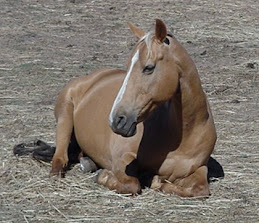
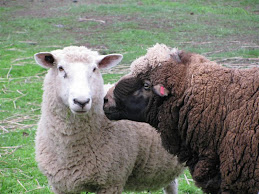.jpg)

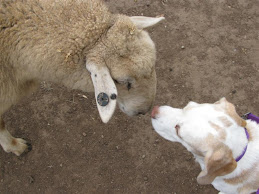.jpg)

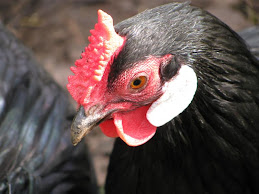.jpg)
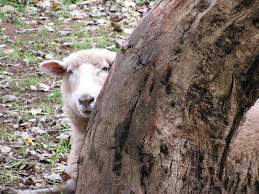.jpg)
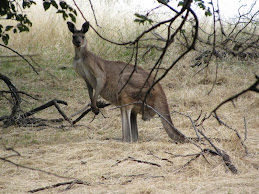.jpg)
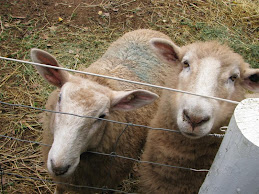.jpg)
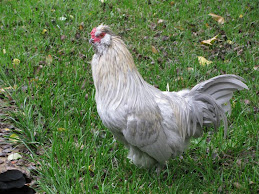.jpg)